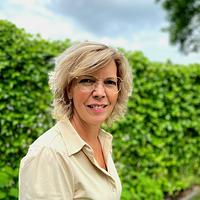Forms of cooperation and quality assurance
Our research takes place in close cooperation with public organisations, industry and education. If we see opportunities for collaboration, we make agreements in advance about what we expect from each other.
This can range from a one-off brainstorming session to a long-running research project. Want to know more about the options? Then please contact us.
Work with us in our labs
New TexEco
New TexEco is a research community consisting of five research groups that have now been researching sustainable textiles for decades: Fashion and Tactical Design at ArtEZ, Sustainable & Functional Textiles at Saxion, Fashion Research & Technology and Fashion Identity at Amsterdam University of Applied Sciences. We are working together with around 30 professional partners, towards achieving a sustainable, circular and regenerative textile sector.
Want to know more about the possibilities?
Get in touch with us!

Options for grants and subsidies
KIEM-HBO offers the opportunity to conduct exploratory research such as feasibility studies with (new) cooperation partners. The scheme is theme-free and a project runs for a maximum of 12 months. Possible outcomes of projects are new research applications, networking activities, prototypes, tests, (business) models, methods, practices, demonstrators, processes, product concepts and service concepts.
Creating new opportunities together with high-tech companies: that is the aim of TechForFuture, Centre of Expertise HTSM East. We discover and develop new technology along with enthusiastic students, who are trained to conduct independent applied research in businesses. This is how we contribute to international research for and with businesses. A grant from the Province of Overijssel gives us the opportunity for 1-on-1 projects with businesses.
The RAAK SME scheme funds research projects at universities of applied sciences in cooperation with SMEs. The aim of the scheme is to promote knowledge exchange to enhance the innovative capacity of SMEs. The cooperation between SMEs and applied universities focuses on knowledge development and application. Research is conducted in networks of applied universities and SMEs based on questions put forward by SMEs. Research results provide practical and applicable knowledge for professional practice. The research also contributes to the renewal of higher vocational education.
The RAAK-PRO scheme funds four-year research projects by universities of applied sciences. Universities of applied sciences conduct systematic research together with knowledge institutions, and professional practice driven by demand from professional practice and ‘real life’ situations. The knowledge and insights gained are structurally translated into new methodologies or alternative courses of action for professionals. Ultimately, the effects of this become evident in educational innovation, professional practice and the knowledge system. RAAK-PRO supports universities of applied sciences in realising their profiling agenda and ambition to connect to regional and supra-regional economic and social developments.
RAAK-public funds research projects of universities of applied sciences in collaboration with the public sector. For example, hospitals, municipalities, water boards and provinces. The scheme creates space for the development of practical innovations that directly enhance the provision of services in the sector. The RAAK-public scheme promotes cooperation between universities of applied sciences and the professional field of higher education professionals working in the public sector. The collaboration focuses on knowledge development and application. Research starts with a question from the professional field. Government-funded applied universities may also submit applications. There needs to be at least two public bodies involved in the research.
Entrepreneurs in Overijssel and Gelderland who want to invest in innovative and sustainable projects are eligible for grants from the European Regional Development Fund (ERDF). The ERDF grant programme OP-Oost (Operational Programme East) supports the development of new and sustainable products. It also encourages collaboration with other entrepreneurs, knowledge institutions, and government bodies. The key priority areas are general innovation and low-carbon innovation. Applications for funding are welcome for project proposals from businesses and partnerships that fit within these priorities and focus on the sectors below:
- HTSM (High-tech systems and materials);
- Health;
- Agrofood;
- Energy and Environmental Technology including bio-based (low-carbon economy including smart growth);
- Crossovers between these spearhead sectors;
- Crossovers with supporting sectors such as: IT, water, chemical, creative and manufacturing sectors.
In the Pioneers in Health Care Innovation Fund, the University of Twente, Saxion, MST, ZGT and Deventer Hospital encourage sustainable collaboration between the world of new technology and medical practice in a bottom-up manner, facilitating the introduction of innovative technology in clinics.
Quality of our research
Quality is paramount at Saxion. Together we work on a strong quality culture, using widely supported and workable instruments and facilitated by quality assurance officers specifically for research. We look at what is going well and how we can exploit it further. In this way, quality assurance supports the design and implementation of practice-oriented research with impact. We apply the national standards for practice-based research, the Branch Protocol for Research Quality Assurance. By organising quality assurance intelligently, we are continuously verifiable. We subscribe to the Dutch Code of Conduct on Scientific Integrity.